Brexit, the Irish border and the 'battle for the union'
- Published
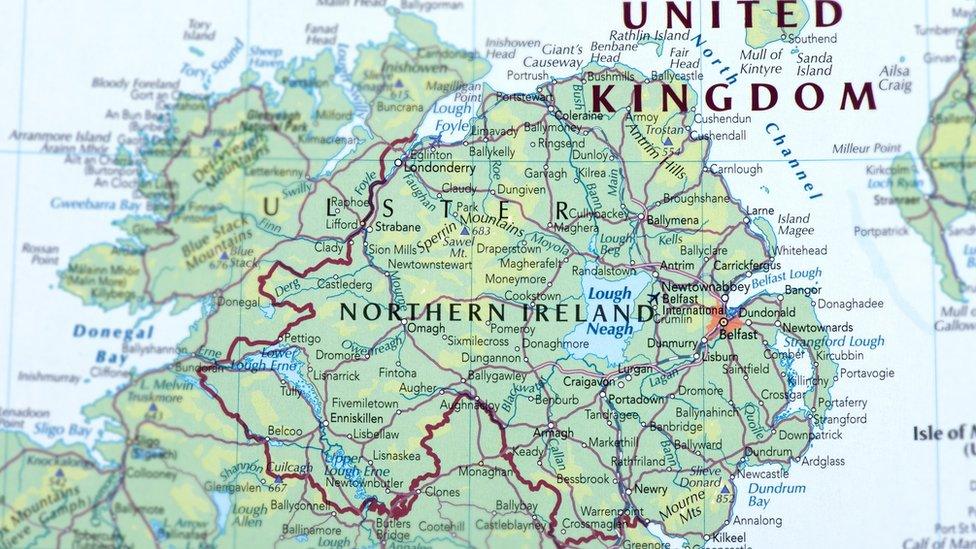
The 310-mile long border separating Northern Ireland and the Republic of Ireland and how it should look after Brexit has become a crucial issue
With fewer than 200 days until the UK is due to leave the EU, the battle over Brexit is reaching dizzying heights of drama.
But perhaps an unintended consequence of the debate is the growing battle over something else - the union.
In particular, the sum of the UK and all its parts.
With the Irish border the main sticking point in the talks, focus has turned to Northern Ireland's future.
On Monday, the DUP's deputy leader Nigel Dodds told the BBC that Brexit negotiations were "turning into a battle for the union".
'Accelerant'
His party is at the heart of the disquiet over the so-called backstop (that's the insurance policy the EU wants, to ensure there's no hard Irish border if the UK and EU can't find another solution).
The DUP's "blood red" line: No to anything that sees only Northern Ireland remaining aligned in some way to EU rules, and no to extra regulatory checks only in Northern Ireland.
It fears anything that splits Northern Ireland from the rest of the UK could pose a range of problems, including precipitating the eventual break-up of the union.
Alex Kane, a former director of communications for the Ulster Unionist Party, believes the pro-union argument would probably win a border poll if one was held, but he's critical of the DUP and unionism more widely for throwing out rhetoric - but not acting on it.
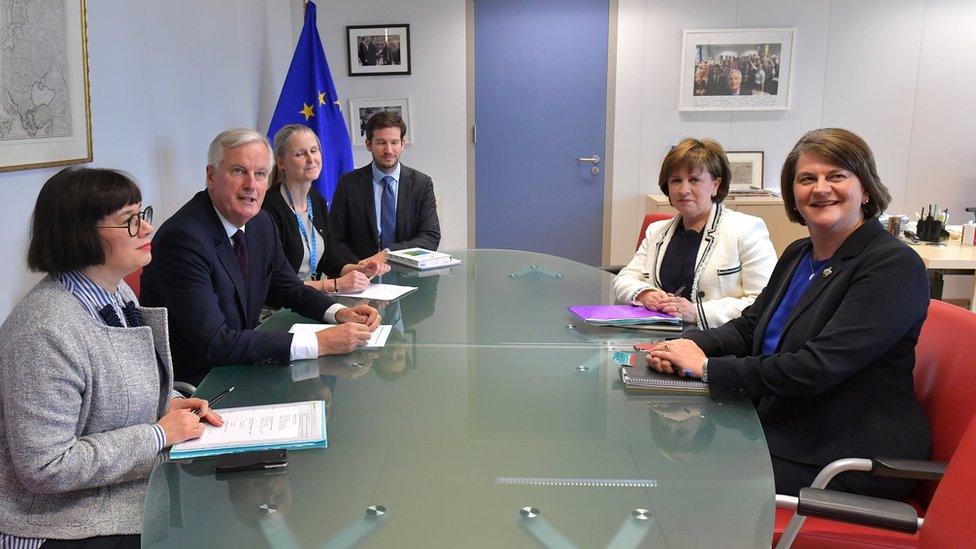
DUP leader Arlene Foster met the EU's chief negotiator Michel Barnier last week - and has since said it appears more likely that Brexit will lead to a no deal outcome
"It's not enough to just say 'the battle for the union' is on," he says.
"You have to have a strategy, you have to be willing to engage. If you mention the phrase border poll to unionists, a lot of the time they dismiss it and say it won't happen."
But writer and former Labour special adviser, Kevin Meagher, says Brexit has been an "accelerant" in pushing forward the possibility of Irish reunification which he insists is almost an inevitability.
"Unionists find themselves riding two horses: standing true to what they believe in, but having to internalise that a united Ireland is a real prospect now," he says.
The power to call a border poll rests with the Secretary of State Karen Bradley, who could do so at any time if it appears "likely" to her that a majority would vote in favour of it, but earlier this year she said the conditions had not been met.
Kevin Meagher says Brexit makes it much more likely to happen, and that there are other contributing factors too:
Lack of devolved government in NI for almost two years, due to a financial scandal over a green energy scheme
Changing demographics in NI, which could see a Catholic majority by 2021
Liberalisation of Republic of Ireland on social issues such as same-sex marriage and abortion
'Precious bond'
The prime minister has always insisted she is a defender of the union and that the "precious bond" between the UK's four nations is of great importance to her.
Kevin Meagher thinks that when it comes to the final roll of the Brexit dice, Theresa May might have to upset her unionist allies.
"Some of those forces are alive already, given Scotland's previous independence vote.
"Brexit quickens the pace around these problems, but Theresa May's got to try and get the best deal, and by upsetting the DUP she can probably get a reasonable deal for rest of the UK."
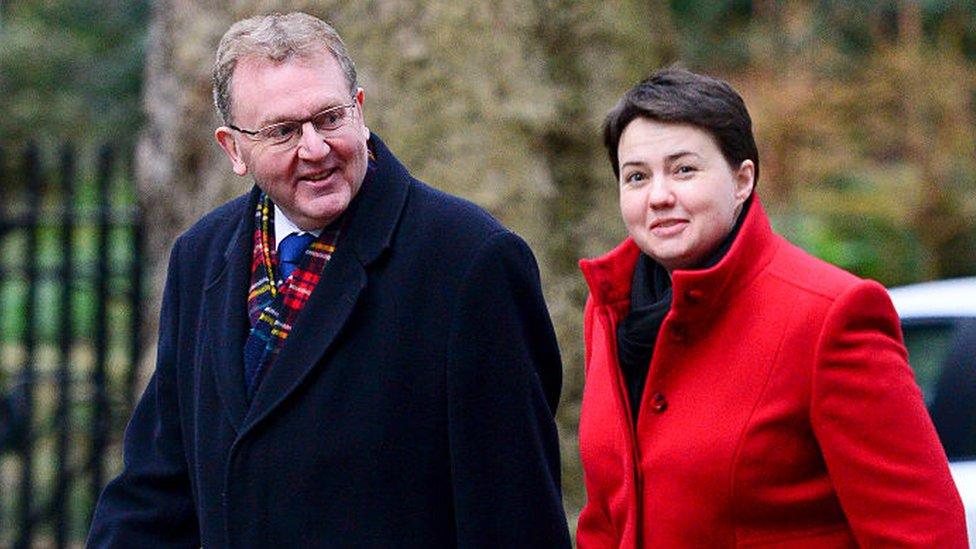
Senior Scottish Conservatives David Mundell and Ruth Davidson have threatened to resign if Theresa May backs a deal that gives NI special arrangements
It's not just the DUP that the prime minister risks upsetting.
On Sunday, just as talks between EU and UK negotiators ground to a halt over the Irish border issue, senior Scottish Conservatives threatened mutiny if any Brexit deal included special arrangements for Northern Ireland.
Their fear is that any new controls that separate Northern Ireland from the rest of the UK could fuel the case for Scottish independence - another potential fracture in the union.
But where does Sinn Féin - the largest nationalist party in Stormont and who also holds seats in the Irish Parliament - figure into all of this?
The party's leadership have stressed that they want to see a border poll by 2022, although they acknowledge it would be much more complicated in the context of a hard Brexit or 'no deal' scenario.
'Worst of all worlds'
The party's Máirtín Ó Muilleoir said fighting against a hard Brexit is a bigger priority for Sinn Féin right now, than achieving a united Ireland - but acknowledged Brexit had strengthened his party's argument for one.
Alex Kane thinks the prospect of Irish unity is "once in a lifetime", arguing that Sinn Féin knows it has an opportunity now that may not come around again for a very long time if it is not successful.
And Kevin Meagher's view is that a united Ireland has moved from being an aspiration for nationalists to an "evidence-based proposition" now.
"Brexit is massively destabilising for the British state, it would be like taking a fillet to the UK," he says.
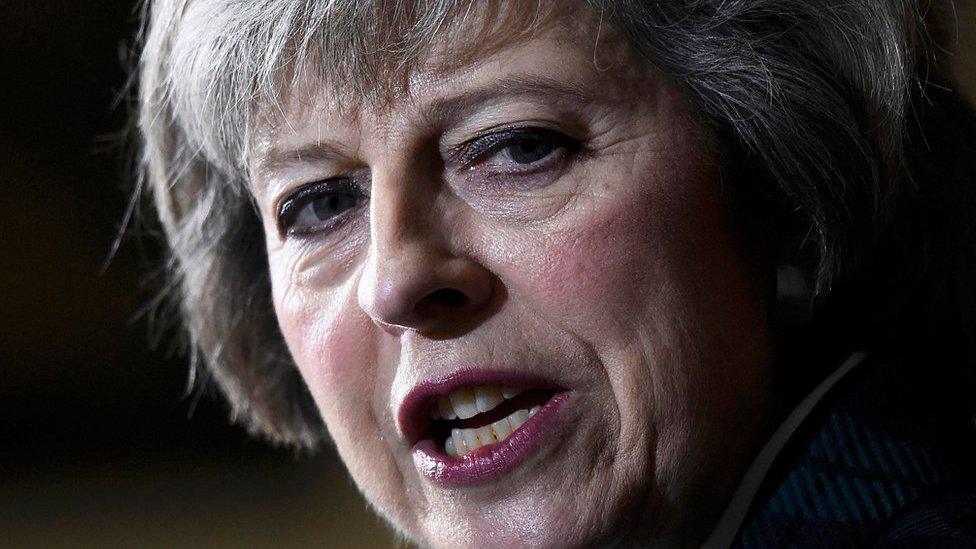
"A hard Brexit would be the worst of all worlds for unionism - with all roads ultimately leading to one point: a border poll."
Theresa's choice
While the Stormont parties may be at odds and internal spats within the Conservatives and Labour rage on, much of what happens next with the union rests on what Theresa May does next.
But could she become the British prime minister who ends up breaking up the UK?
Kevin Meagher says she's in an incredibly difficult position, adding: "Trying to judge her place in history, I don't envy her, I don't think anybody does."
While in Alex Kane's view, the prime minister has a stark choice: "A deal in the best interests of the UK or the interests of one party."
Mrs May does not have much time left to decide.
- Published4 October 2018
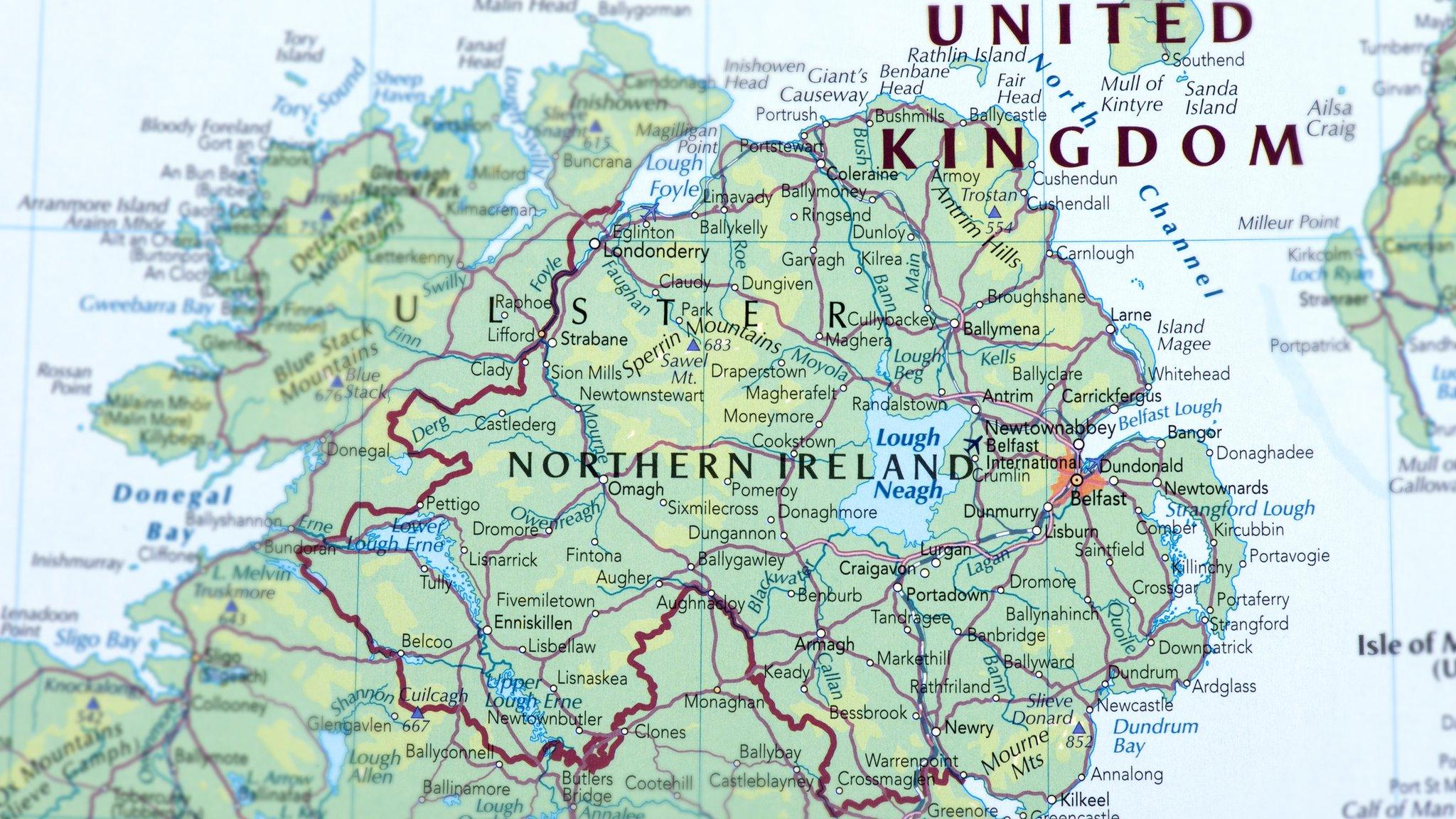
- Published10 October 2018
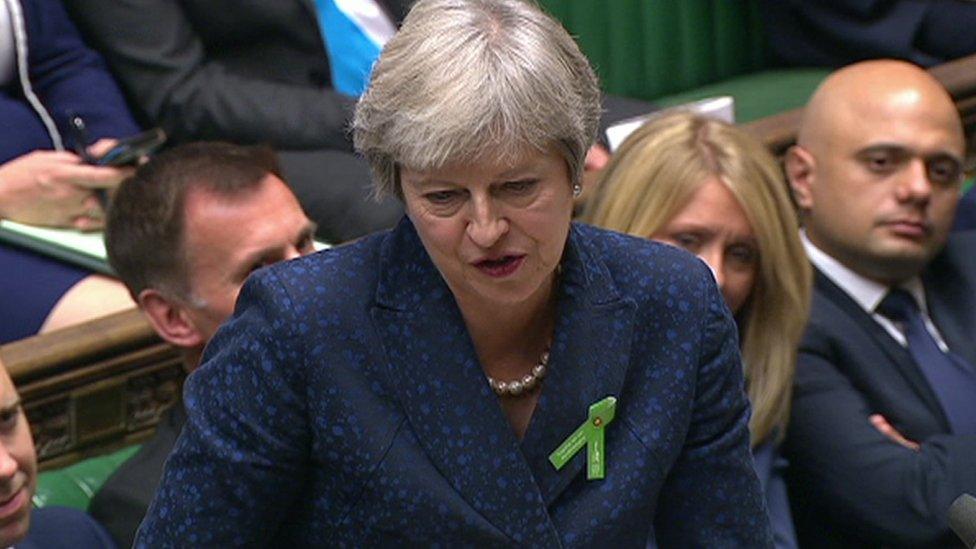
- Published9 October 2018